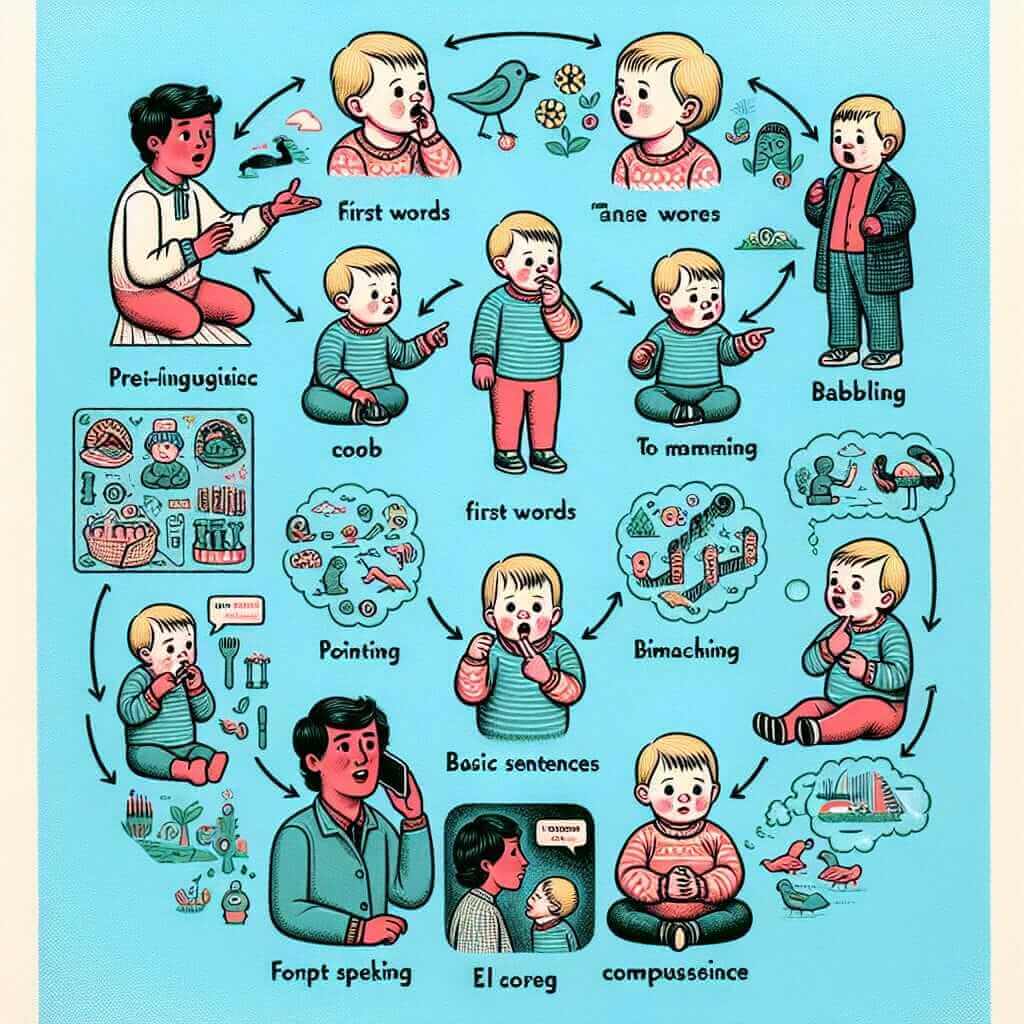As an IELTS instructor with over two decades of experience, I often encounter students fascinated by the seemingly simple question: “Why don’t babies talk like adults?” This curiosity isn’t just about linguistics; it reflects a deeper understanding of language acquisition and its relevance to the IELTS Speaking test.
Language Acquisition and IELTS: Understanding the Connection
You might wonder why this topic matters for your IELTS journey. The answer is simple: The IELTS Speaking test assesses your ability to communicate effectively in English. Understanding how language develops, even from infancy, can provide valuable insights into the structure, nuances, and complexities of the language.
The Stages of Language Development: From Babbling to Fluency
Babies don’t wake up speaking in perfect sentences. Their journey to fluency is a gradual process, marked by distinct stages:
1. Pre-linguistic Stage (0-12 months):
- Cooing and Babbling: Babies experiment with sounds, replicating what they hear and gradually refining their vocalizations.
2. One-Word Stage (12-18 months):
- First Words: Single words are used to express a complete thought (e.g., “mama,” “dada,” “ball”).
3. Two-Word Stage (18-24 months):
- Telegraphic Speech: Two-word combinations emerge, resembling a telegram with essential information conveyed (e.g., “want milk,” “go park”).
4. Multi-Word Stage (2+ years):
- Sentence Formation: Children begin constructing more complex sentences, gradually mastering grammar rules and expanding their vocabulary.

Why Babies Don’t Sound Like Adults: Key Factors
The reasons behind babies’ simplified speech are multifaceted:
- Physical Development: Their vocal cords and articulatory muscles are still developing, limiting their ability to produce the full range of adult sounds.
- Cognitive Development: Language comprehension and cognitive abilities develop in tandem. As babies learn about the world, their language skills advance.
- Social Interaction: Exposure to language through interaction with caregivers is crucial. Babies learn by imitating and receiving feedback.
Applying Language Acquisition Insights to IELTS Speaking
While you won’t be assessed on your knowledge of infant speech patterns, understanding these principles can enhance your IELTS Speaking preparation:
- Embrace Mistakes: Just like babies learning to speak, don’t be afraid to make mistakes. View errors as opportunities for growth and learning.
- Focus on Fluency: While grammatical accuracy is essential, prioritize clear and natural communication, even if it means using simpler structures at times.
- Listen Actively: Pay attention to native speakers. Observe their pronunciation, intonation, and vocabulary choices to improve your own.
- Practice Consistently: Regular practice is key to building fluency and confidence, just as it is for babies mastering their native tongue.
Conclusion
The question of why babies don’t talk like adults offers a fascinating glimpse into the intricacies of language acquisition. By understanding these principles, IELTS candidates can approach their speaking practice with a fresh perspective, embracing the learning process and striving for clear, confident communication. Remember, even the most eloquent speakers started their language journey with a simple “goo-goo-gaa-gaa.”